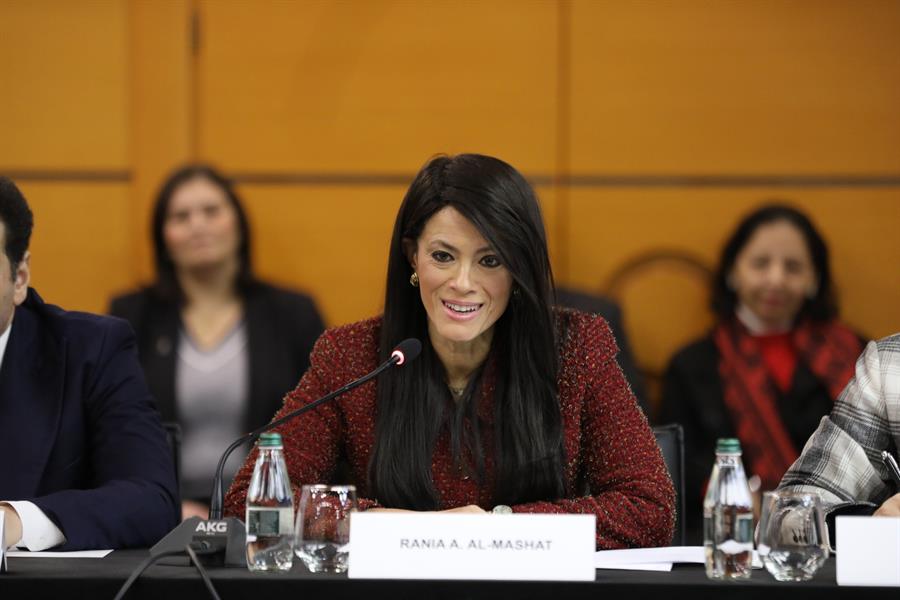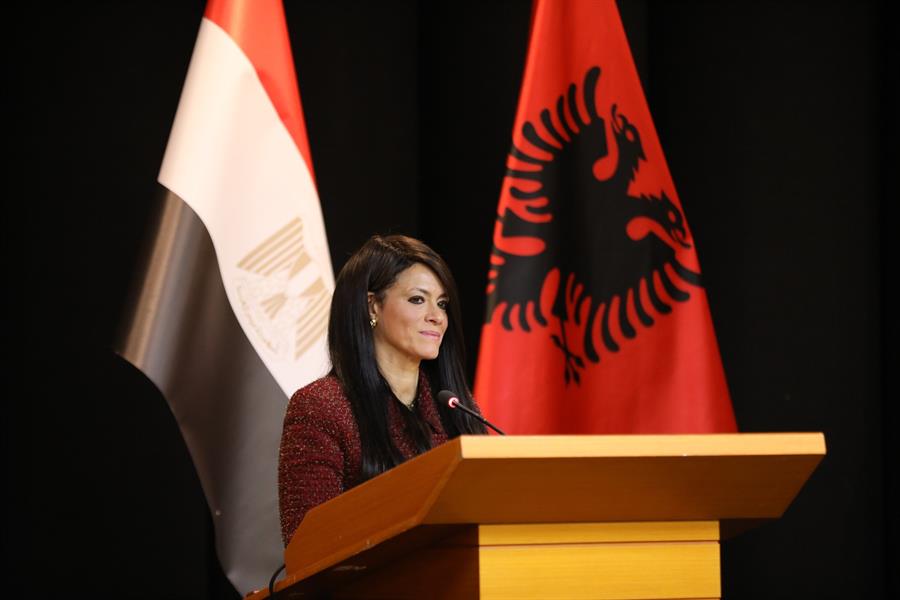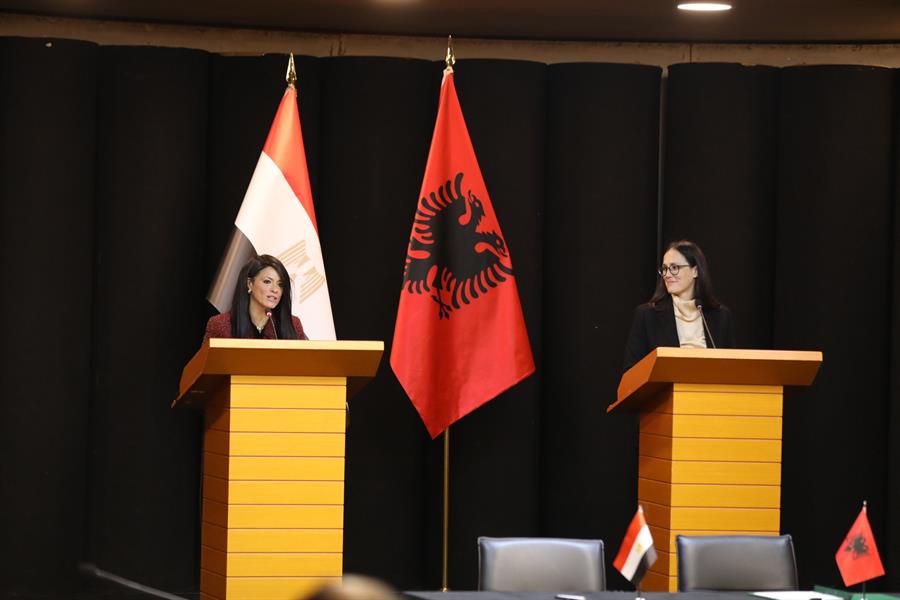The Minister of Planning and Economic Development receives the Director of Development Policies and Partnerships at the World Bank to discuss Egypt’s hosting of COP27

06 April 2022
H.E. Dr. Hala El-Said, Minister of Planning and Economic Development, received Mrs. Mari Pangestu, Managing Director for Development Policies and Partnerships at the World Bank, and her accompanying delegation to discuss the agenda for Egypt’s hosting of the COP27 climate conference.
The meeting witnessed the presence of Mrs. Marina Weiss, Country Director for Egypt, Yemen and Djibouti. Yasmine Al-Hini, Acting Country Director of the International Finance Organization (IFC), and from the Ministry of Planning, Dr. Ahmed Kamali, Deputy Minister, Ambassador Hazem Khairat, Director of the International Relations Office at the Ministry.
During the meeting, Dr. Hala El-Said reviewed the features of Egypt's Vision 2030 and the process of updating the vision to keep pace with global developments.
El-Said stressed the ministry's keenness to integrate environmental dimensions, sustainability and climate change into various relevant national plans and strategies.
She noted that the ministry has updated the sustainable development strategy "Egypt Vision 2030” to reflect a number of challenges, including the repercussions of the pandemic, international and regional changes, as well as environmental challenges, water scarcity and climate change.
El-Said referred to a number of development projects that are being implemented, on top of which are the presidential initiative, (Decent Life)the national project for the development of the Egyptian family, as well as the areas of work of the agencies affiliated with the Ministry of Planning, which include the Central Agency for Public Mobilization and Statistics (CAPMS), the institute of National Planning (INP) the National Institute for Governance and Sustainable Development (NIGSD), and internal units in the ministry, including the Modeling Unit, the Sustainable Development Unit, the Macroeconomic Unit, and the National Accounts Unit.
She further highlighted the Ministry’s 2030 (Rowad) Pioneers Project and what it offers to spread the idea of entrepreneurship and self-employment among young people.
El-Said highlighted the establishment of The Sovereign Fund of Egypt (TSFE) as one of the mechanisms to enhance partnership with the private sector, which represents the investment arm of the government.
El-Said explained that TSFE was established in 2018 within the framework of the Egyptian state’s plan to achieve sustainable development, Egypt’s Vision 2030.
Moreover, she highlighted TSFE’s efforts in the field of climate change by investing in a number of green projects, such as the hydrogen production project in partnership with a number of specialized international companies, the project to produce railcars to support sustainable transportation efforts, as well as water desalination projects.
El-Said stressed that adapting to climate changes has become a major priority for the Egyptian state.
She also said that policies aimed at supporting the transition to a green economy and maintaining the sustainable use of natural resources came at the heart of the structural reforms program, which represents the second phase of the economic and social reform program launched by the state in 2016, which includes providing financing and export incentives for environmentally friendly products and exports at the national level.
She noted the country’s adoption of environmental sustainability standards that aim for green projects to represent 30% of the state’s investment plan for the current fiscal year, and 50% of the 2024/2025 plan.
For her part, Mrs. Mari Pangestu, Managing Director for Development Policies and Partnerships at the World Bank, praised the Egyptian efforts in the field of transition to a green economy and the role of the Ministry of Planning in the country's investment plan.
She stressed the readiness to support the Egyptian government in preparing for COP27 events.
“We can provide an advanced dialogue on various issues , including also presenting a summary of lessons learned from the experiences of countries that have previously organized the Cop Conference,” El-Said said.









